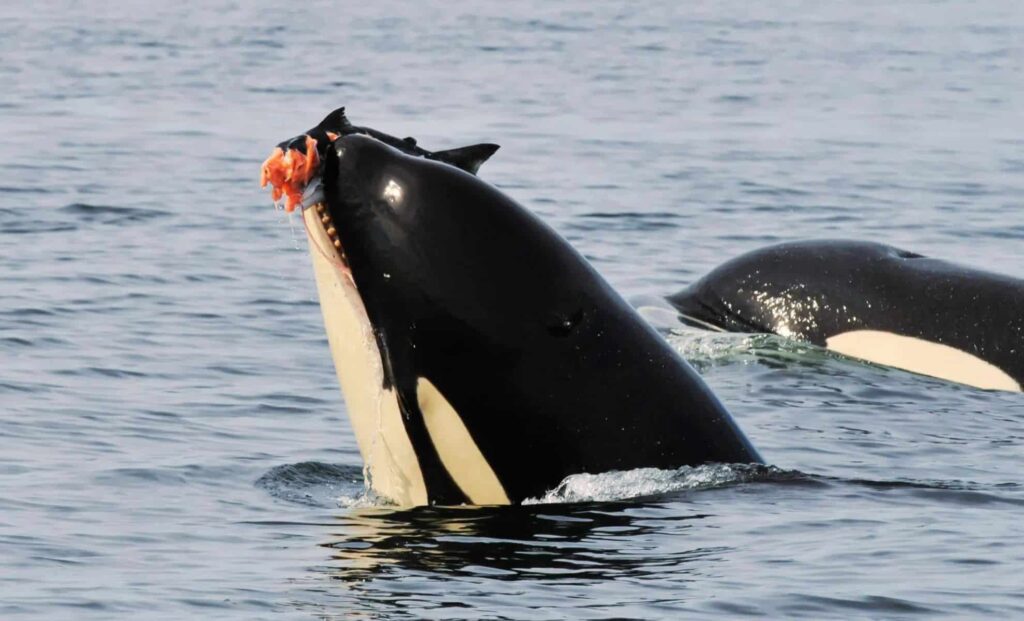A new study published in the Journal of Comparative Psychology has documented something extraordinary in the animal kingdom: wild killer whales repeatedly offering food to humans. Over a 20-year span, researchers recorded 34 verified cases from California to New Zealand, Norway, and Patagonia, where orcas approached people with fish, rays, or squid, sometimes making multiple attempts after an initial refusal.
The findings, led by Jared Towers of Bay Cetology in Canada alongside Ingrid Visser of the Orca Research Trust in New Zealand and Vanessa Prigollini of the Marine Education Association in Mexico, are raising new questions about cross-species interaction.
A Pattern Seen Across Oceans and Decades
The documented cases follow strict criteria: the orcas had to initiate the interaction entirely on their own, without humans approaching them first, and the prey had to be placed directly in front of the person. Out of the 34 events, 11 happened with people in the water, 21 involved individuals on boats, and 2 occurred with people standing on shore. In all but one incident, the whales lingered after the offering, as if waiting for a response.
Seven times, they tried again after the first offering was ignored or refused. According to Towers, food sharing among orcas is a prosocial activity—a way to build and maintain relationships within their pods. “That they also share with humans may show their interest in relating to us as well,” he explained.

Why Would Orcas Share Food With Humans?
Food sharing is common within orca communities, both among family members and unrelated individuals. Orcas also often hunt prey much larger than themselves, such as large fish or marine mammals, leaving them with excess food. The researchers suggest several possible motivations for extending this behavior to humans: practicing learned cultural traditions, engaging in play, satisfying curiosity, or testing potential social bonds across species.
As the authors write, “Offering items to humans could simultaneously include opportunities for killer whales to practice learned cultural behavior, explore or play, and in so doing learn about, manipulate or develop relationships with us.” Given orcas’ advanced cognitive abilities and highly cooperative social structures, scientists believe these scenarios are all plausible.
How the Study Adds to Our Understanding of Marine Intelligence
While domesticated animals like dogs and cats are known to bring food or objects to humans, documented cases involving non-domesticated wildlife are rare. This study offers one of the most detailed records of the phenomenon in a marine species. The inclusion of verified photographs and videos adds credibility, helping rule out accidental encounters or misinterpretations.
The research team emphasizes that this behavior could represent more than curiosity—it may reflect elements of orca culture passed between individuals over generations. Understanding these exchanges could deepen our grasp of how intelligent marine species perceive and interact with humans.

